Honey Thief
Words: Michael Sharp. Photography: Ashley Mackevicius.
The bees around Bowral love the blooms of the Brown Barrel eucalypts that grow abundantly on the slopes of Mount Gibraltar.
One of the great joys of the life that Deb and Greg McLaughlin have built for their family in The Southern Highlands is to sit on a hill on a summer afternoon and watch their bees return to their hives.
“When you are in their presence, you are totally present,” says Deb. “Just sitting quietly near them and listening to their hum and their vibration. It is just beautiful.”
Deb and Greg met at St Vincent’s Hospital, where Deb was working in the corporate office and Greg was a consultant in the implementation of radiation and oncology facilities. A dozen years ago they were living in inner-Sydney Newtown with two young children.
“We watched way too many episodes of River Cottage and were inspired by the idea of a self-sufficient lifestyle,” Deb recalls. “We started visiting friends in The Southern Highlands on weekends – and we just didn’t want to go home.”
Their original plan was to own a small farm while still living in the city, but the conversation quickly evolved to “let’s just move”.
“Our children were only one and two at the time,” says Greg, “and we thought if we don’t do it now, it will be 20 years before we can. So we did it.”
They found a three hectare property near Mount Gibraltar and moved there in the winter of 2011. They named it Bulwarra, which was the name of the street where Deb grew up in Sydney and is an Aboriginal word meaning “view from lofty height”. Bulwarra soon boasted vegetable patches, a few sheep, a dozen alpacas, 20 hens and a vineyard with 200 chardonnay vines and 200 pinot noir vines.
Deb and Greg wanted to also keep bees to promote pollination, however a local permaculture consultant told them The Southern Highlands was too cold for bees. Despite this advice, they decided to try a couple of hives. Greg did a beekeeping course in Sydney and they enjoyed their first honey harvest in 2012.
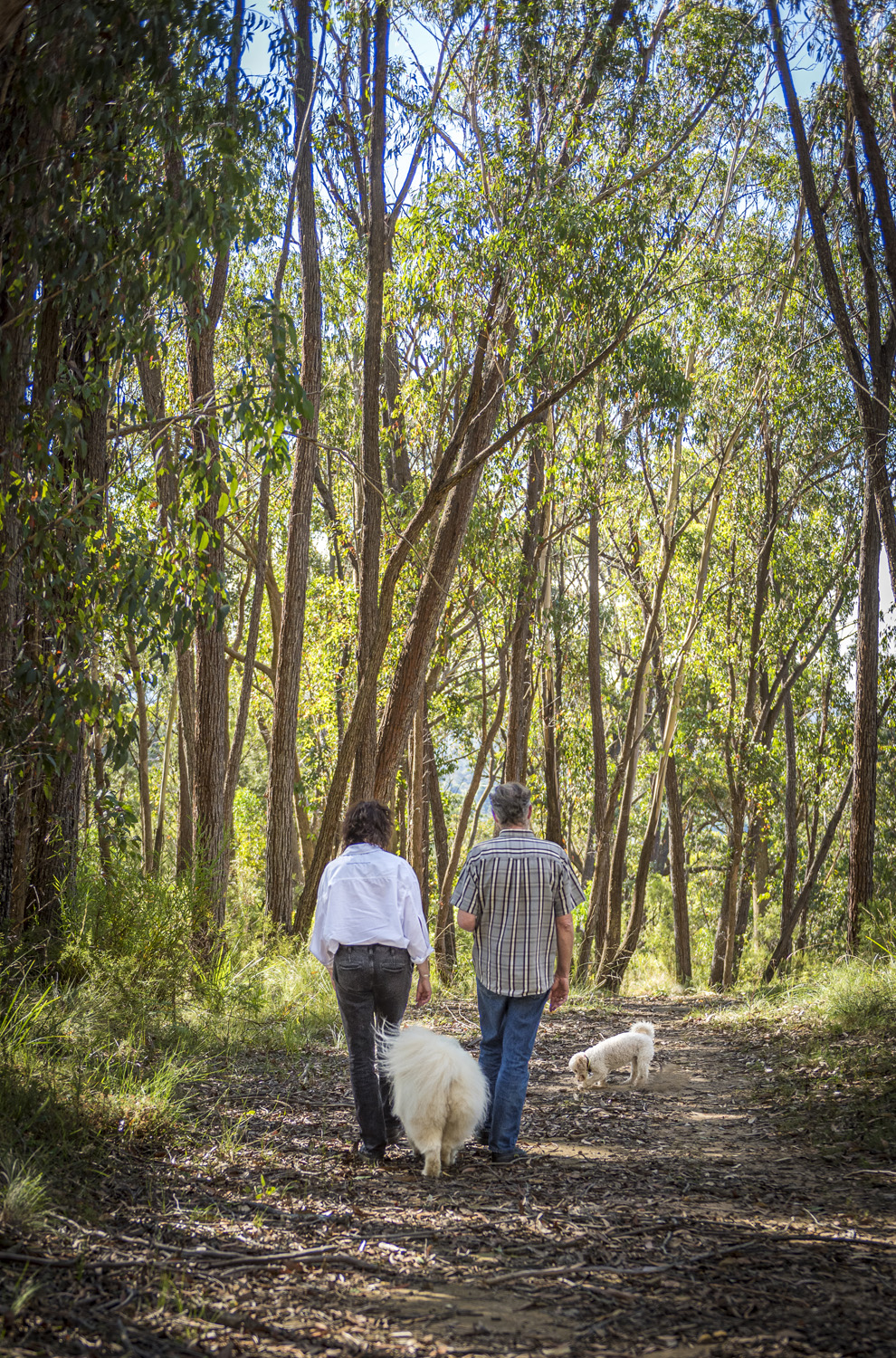
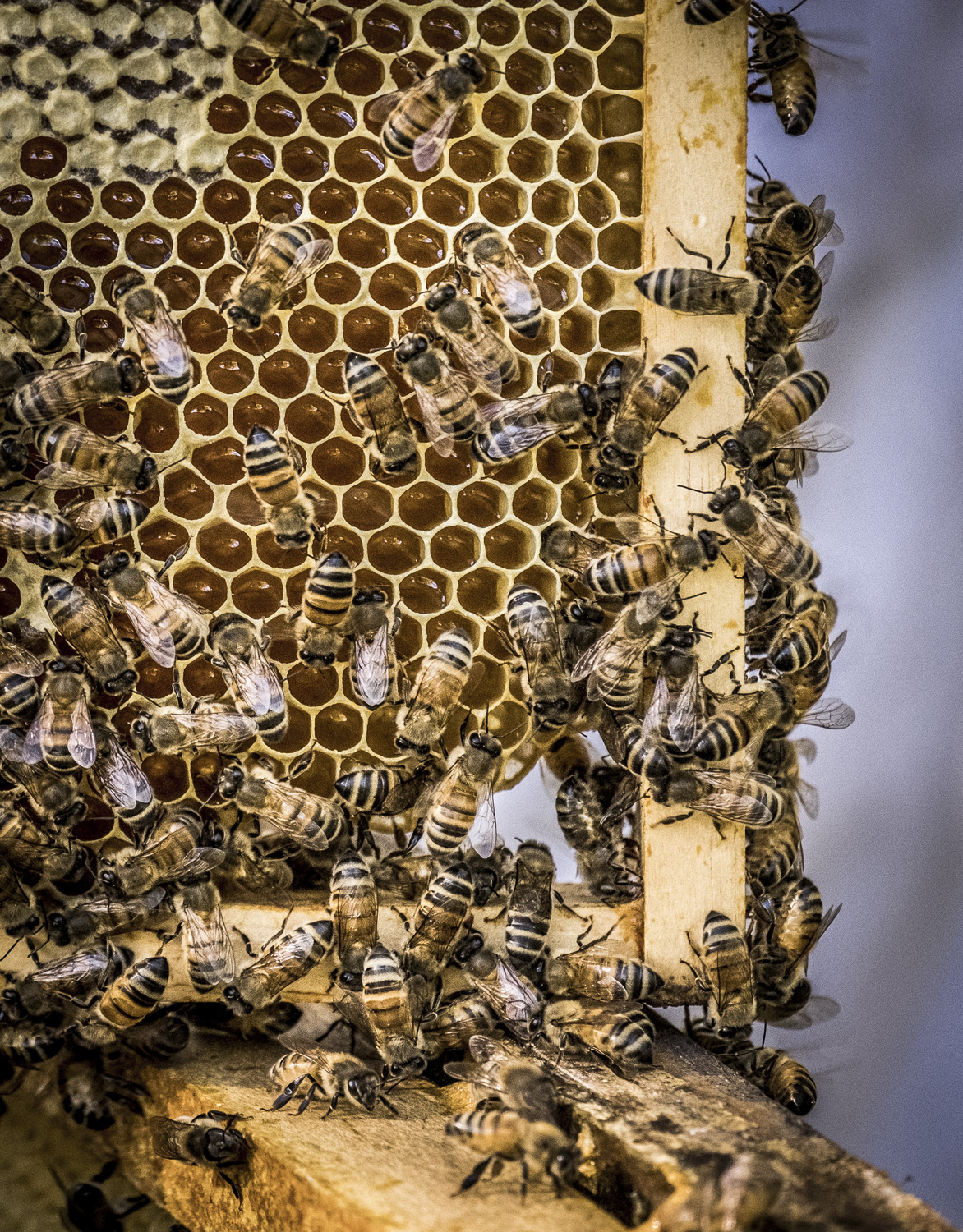
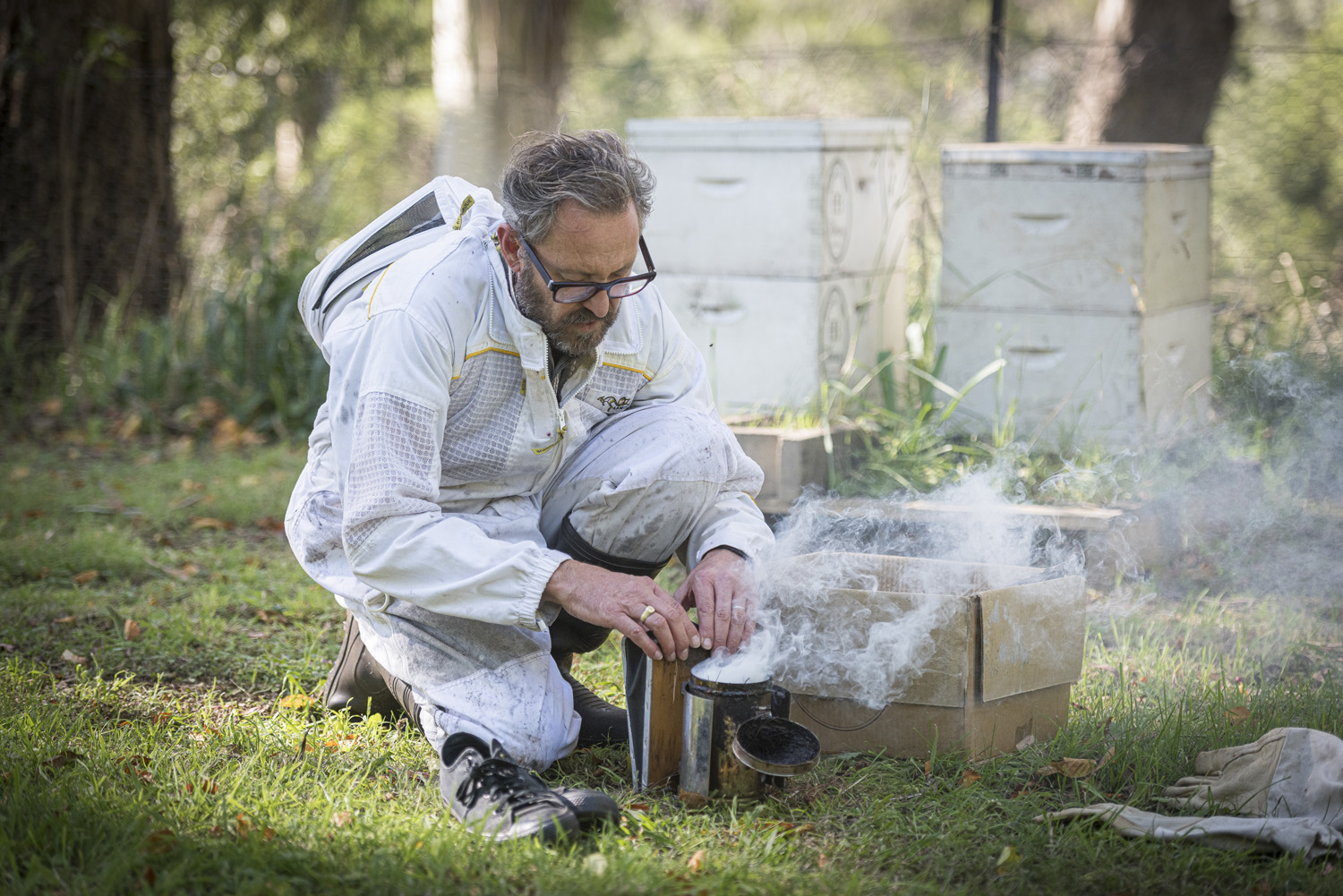
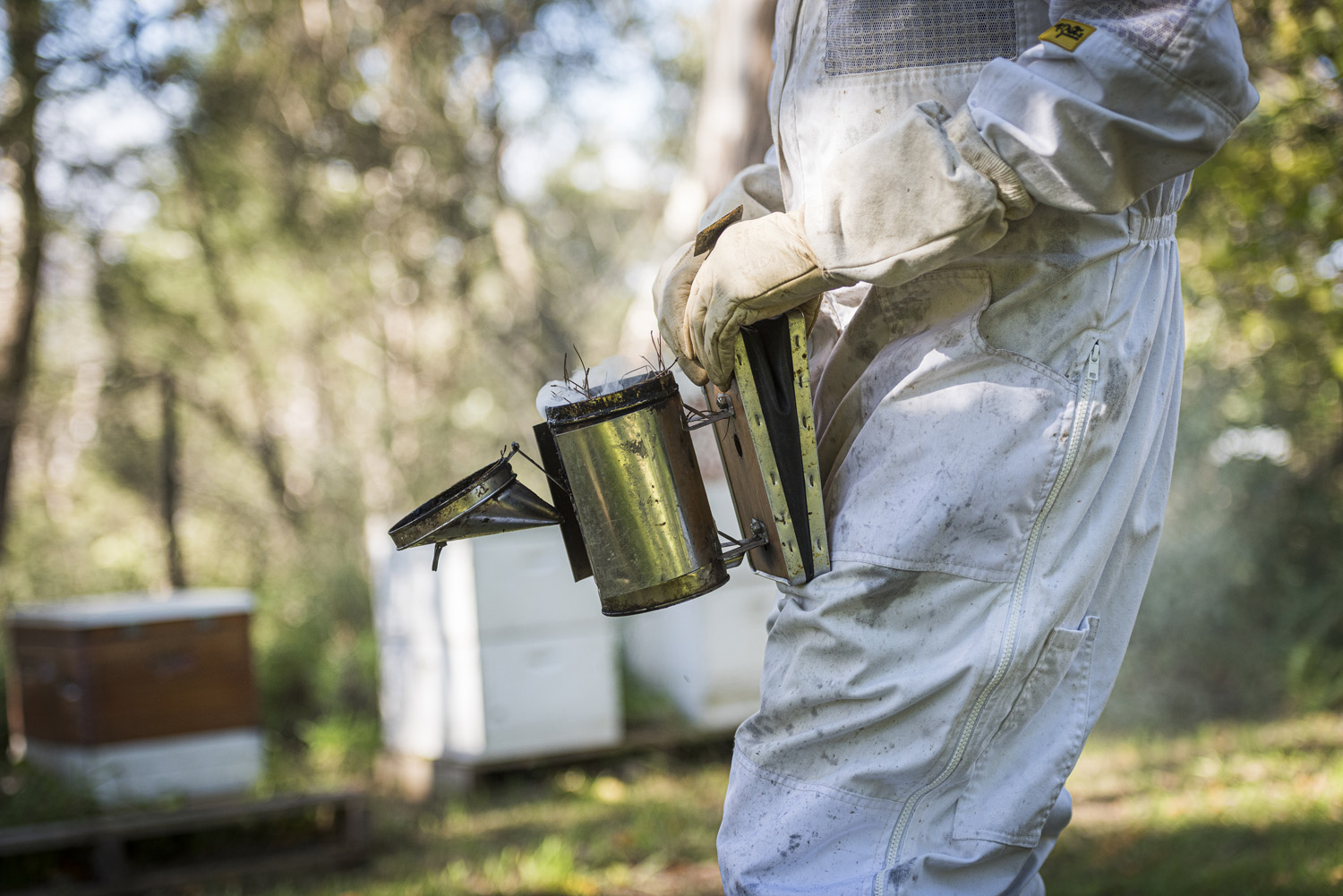
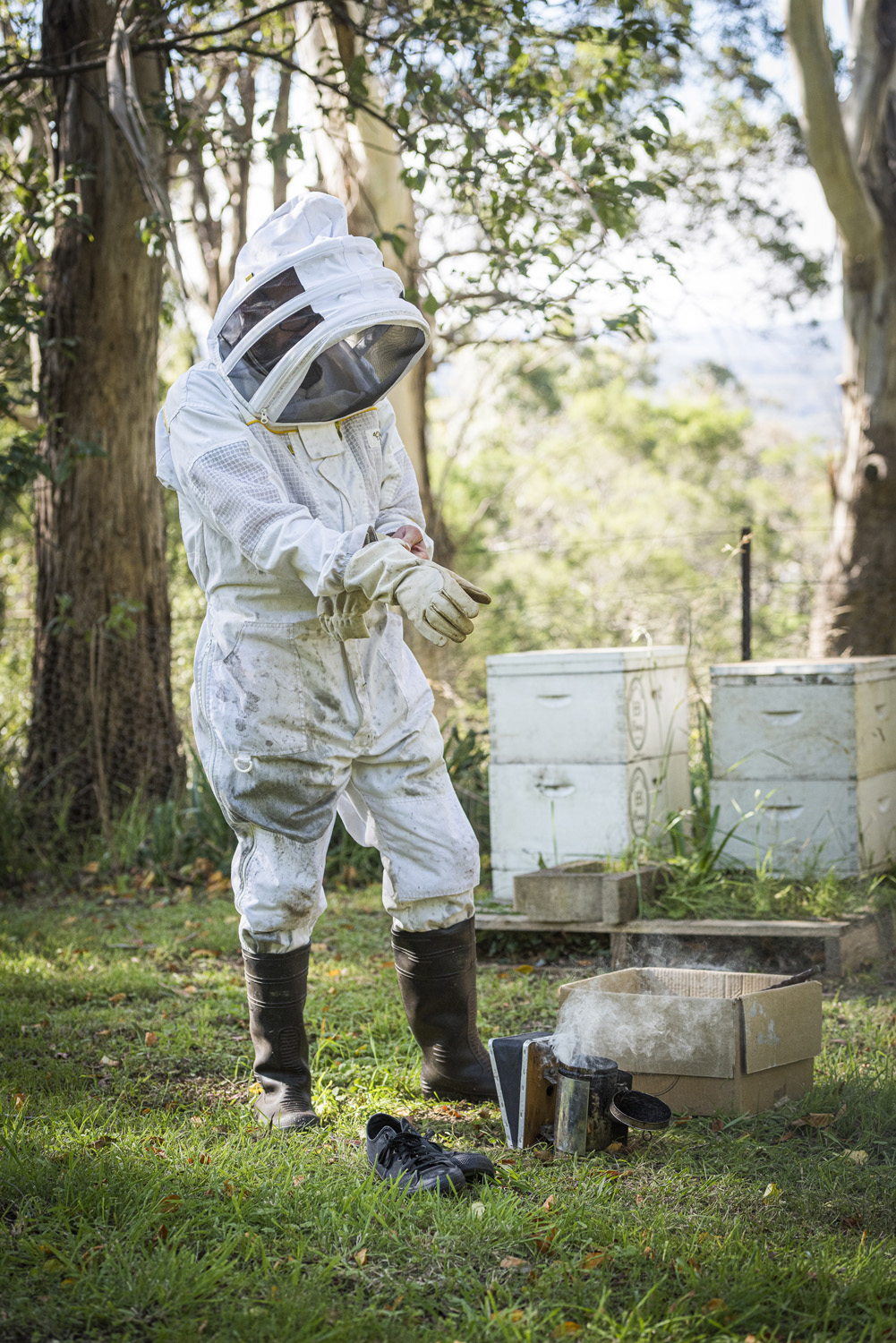
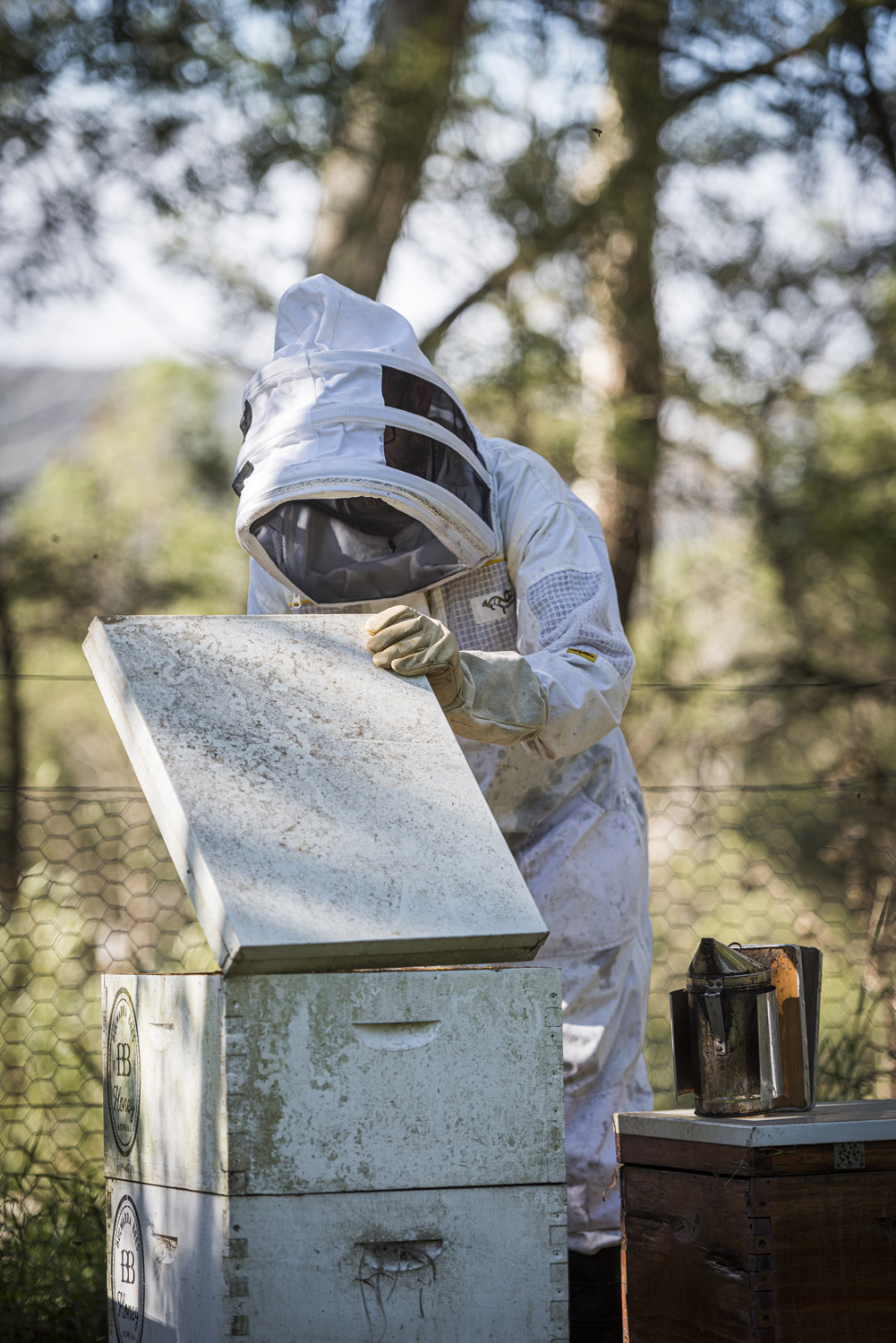
“The conditions were excellent that year and we produced about 40 kilograms of honey from each hive. Greg was really excited and said: ‘You have to taste this honey, it’s amazing.’ My experience until then was only with store-bought honey which was always amber in colour and tasted pretty much the same. But this honey was dark and velvety in texture and it had the most gorgeous taste – like fruitcake.”
Greg thought they should enter some local competitions and they were delighted to immediately win awards for best dark honey.
In 2015, only three years after their first harvest, they entered the National Honey Show at the Sydney Royal Easter Show. Astonishingly, they placed first in the Dark category and second in Amber.
Their success in competitions, and the fact they were producing substantially more honey than the family could consume, led to the decision to start selling their honey at local markets under the brand Bulwarra Bees. They enjoyed success from the outset and then began exploring “the honey alchemy side of things”.
“I would love to take credit for this,” says Deb, “but it was actually Greg’s idea originally. He suggested we should try mixing cinnamon with the honey. Well, it would just sell out at the markets every month. This inspired me to think what else we could do and we next tried mixing chocolate with honey for Easter. That went well and I started experimenting further and now we sell 13 different flavours of honey – with another three flavours coming out soon.”
All the preparation – infusing, stirring, pouring, labelling – is done by hand and all their containers are made of glass, not plastic.
With sales at local markets going well for over five years, the McLaughlins decided to open a shop in Bowral. The first day of trading was scheduled for July 2021 – the week that The Southern Highlands went into a COVID-induced lockdown. They weren’t able to open their doors until October.
They had called the shop The Honey Thief.
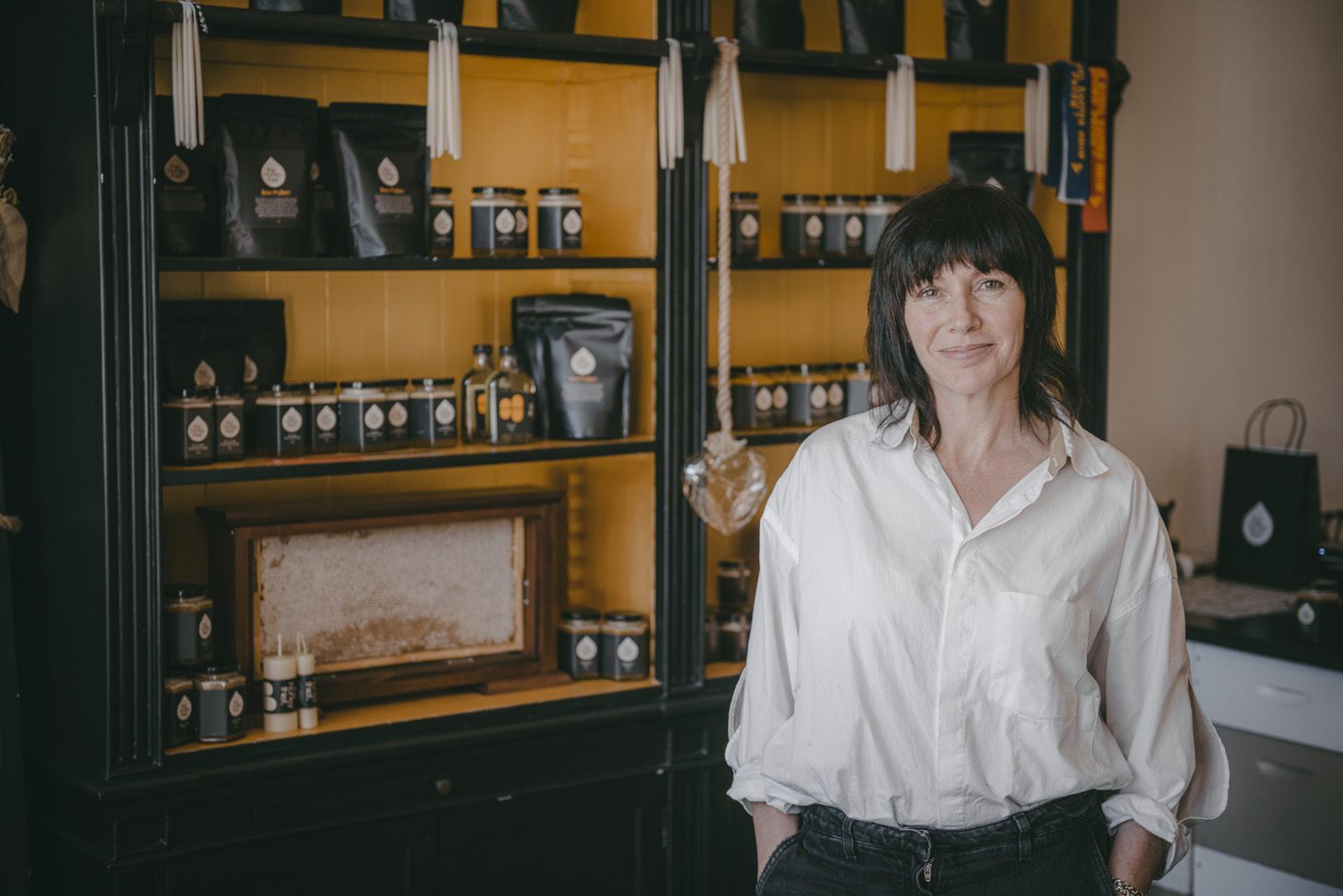
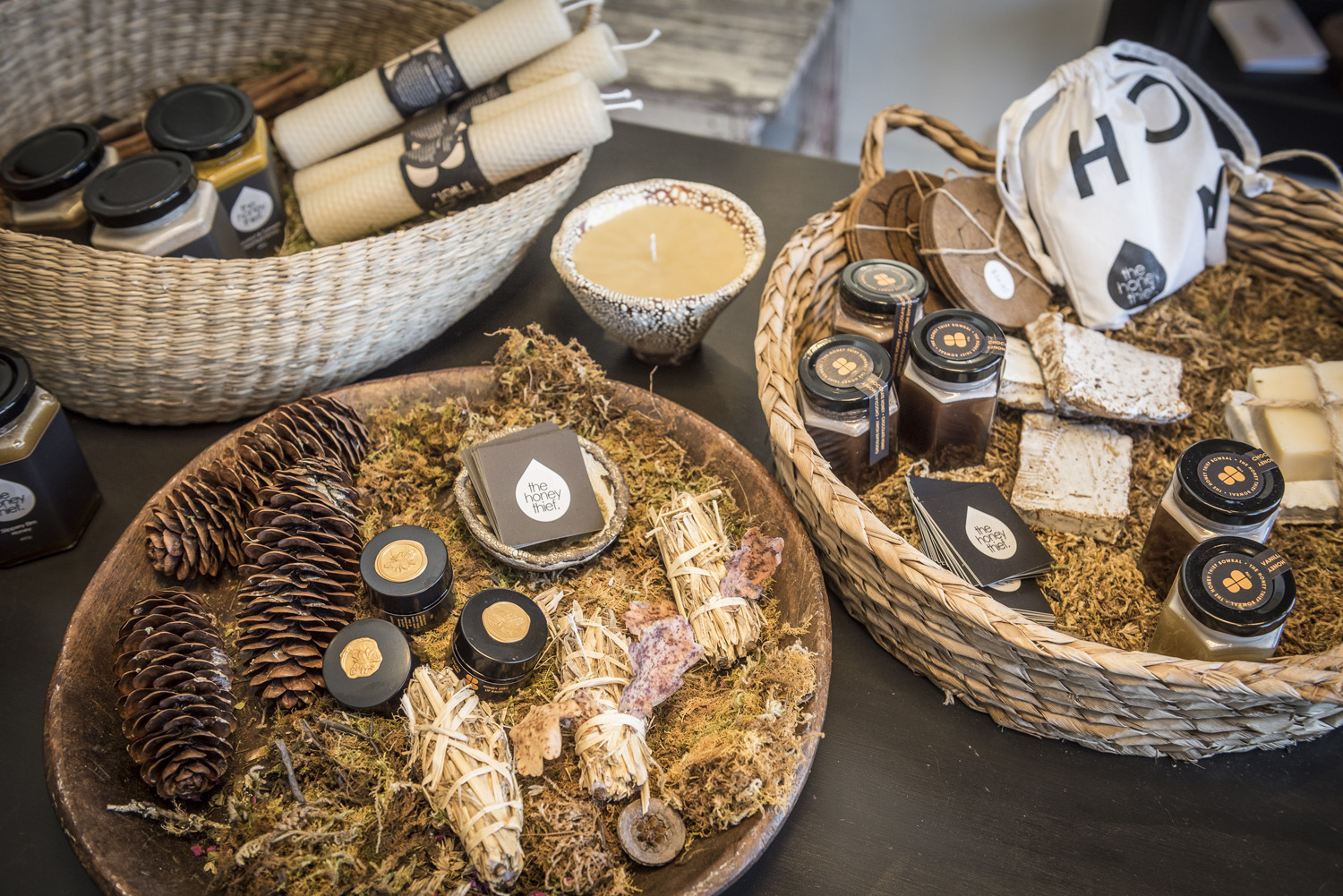
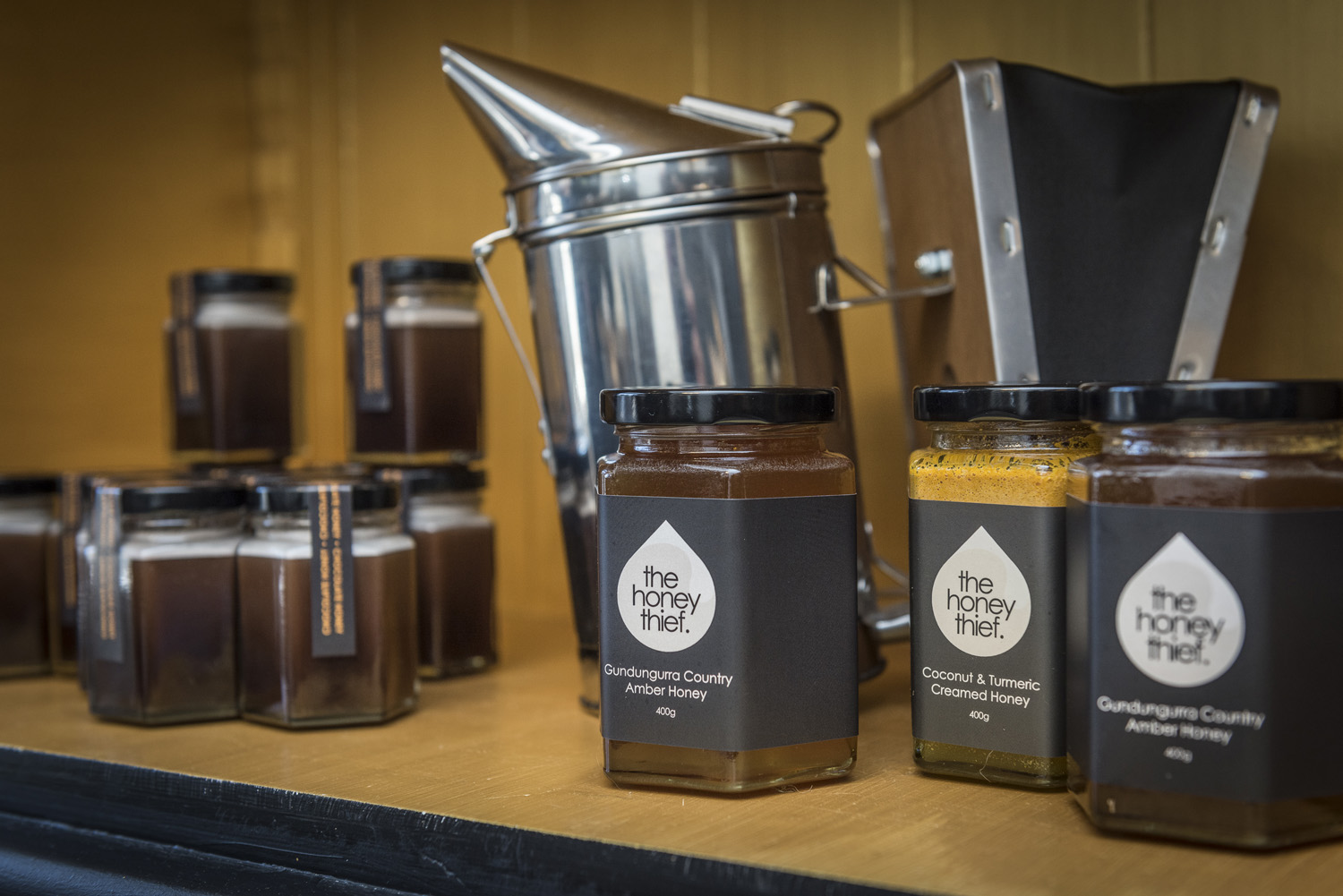
“I was speaking to my mother on the phone one day and she asked me how Greg was and what he was up to,” explains Deb. “I said: ‘He’s robbing the hives, he’s a honey thief!’ We thought that would be a good name for our shop.”
The name reveals that Deb and Greg understand and respect where their honey comes from.
“Our first four years of honey production were absolutely amazing, but the past four years have been very challenging,” says Deb. “First there was drought. The plants were stressed and the eucalypts were just not blooming. When there is no rain, there are no flowers and when there are no flowers, there is no honey. In addition, our dams dried up – and each hive needs a litre of water a day. We lost a third of our hives during that time.
“For the past two years there has been too much rain. This means the nectar is very wet and the bees have to work extra hard to get the moisture out in order to produce honey.
“Bee keeping is a fast-growing hobby in Australia, including in The Southern Highlands, and it’s all about flow hives and being able to readily access honey. But I want to encourage kinder bee keeping, which is more about what’s best for the bees and less about what you can take from them. Kinder bee keeping means opening the hives as little as possible and having minimal intervention. It means providing the best environment for the bees rather than focusing on what they can do for us. It’s more about them.”
This is why The Honey Thief currently uses honey from other hives in the area and its labels state the honey is sourced “from Gundungurra country”, which stretches from Picton in the north to Goulburn in the south and west to the Blue Mountains.
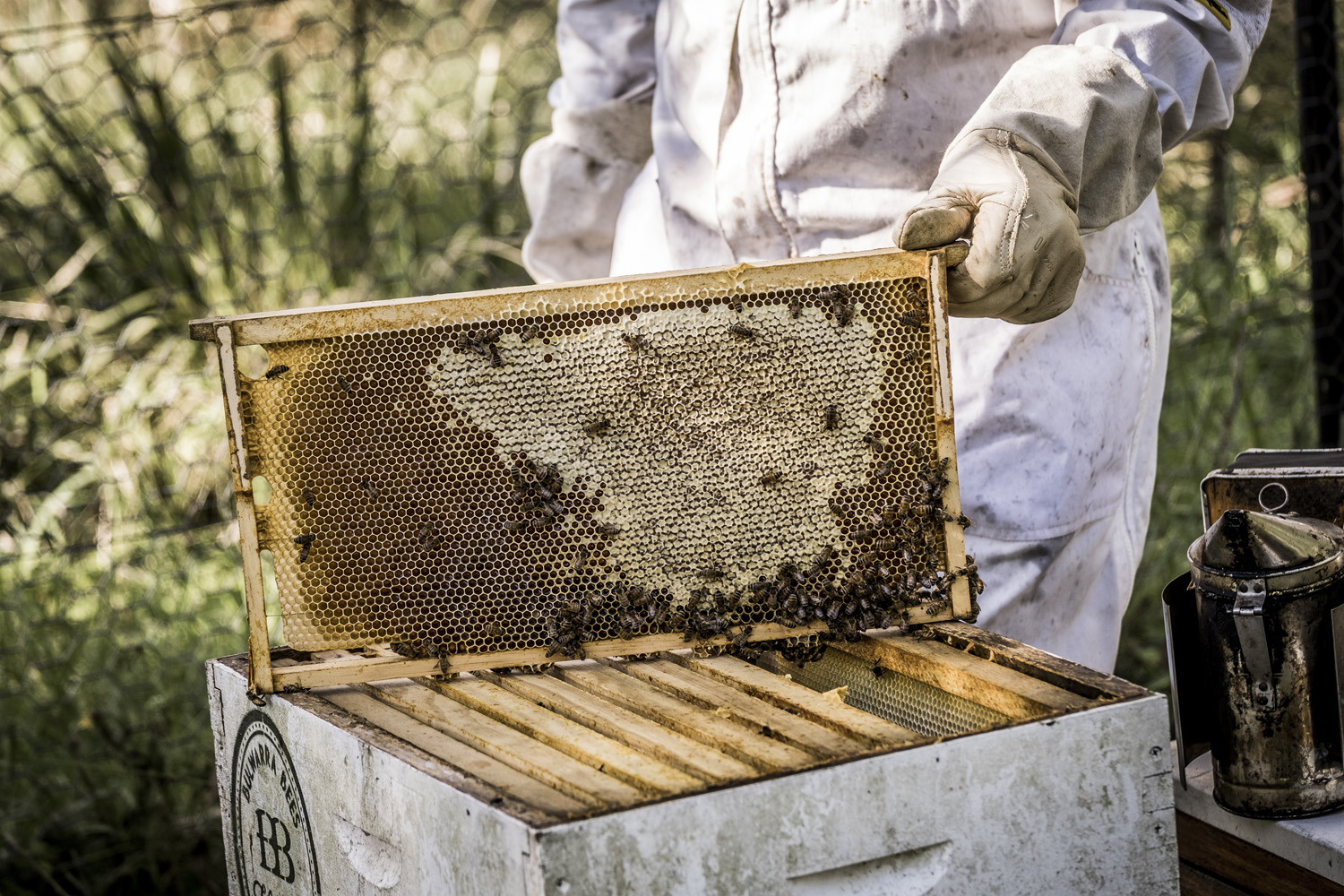
Deb notes that one easy thing people can do to support bees, especially during difficult times, is to plant purple flowering varieties. Bees see in black and white when they are flying, but when they begin their descent they start seeing colour – first green and then ultraviolet.
The Honey Thief offers over a dozen types of honey as well as a range of other products. This includes a cough serum made from raw honey with organic lemons, ginger, garlic and onions. This elixir and chai honey are The Honey Thief’s best sellers. They also sell beeswax candles, lip balms and bath products.
The McLaughlins’ original aim was to live a more self-sufficient lifestyle. Apiary was initially just part of their story, but it has grown to become central to their life. Their honey has received numerous prizes, their business has received a Local Business Award for Environmental Sustainability and Deb was selected as a finalist in the 2022 Australian Women’s Small Business Awards.
“We’ve come a long way,” Deb says, “but the biggest challenge is the environment, which we have no control over. Bees are vitally important because they are responsible for the pollination of a third of our crops. They are the pillars of our food chain and we are totally dependent on them. That’s why there needs to be a shift to kinder bee keeping and conservation.”
For more information visit: www.thehoneythief.com.au
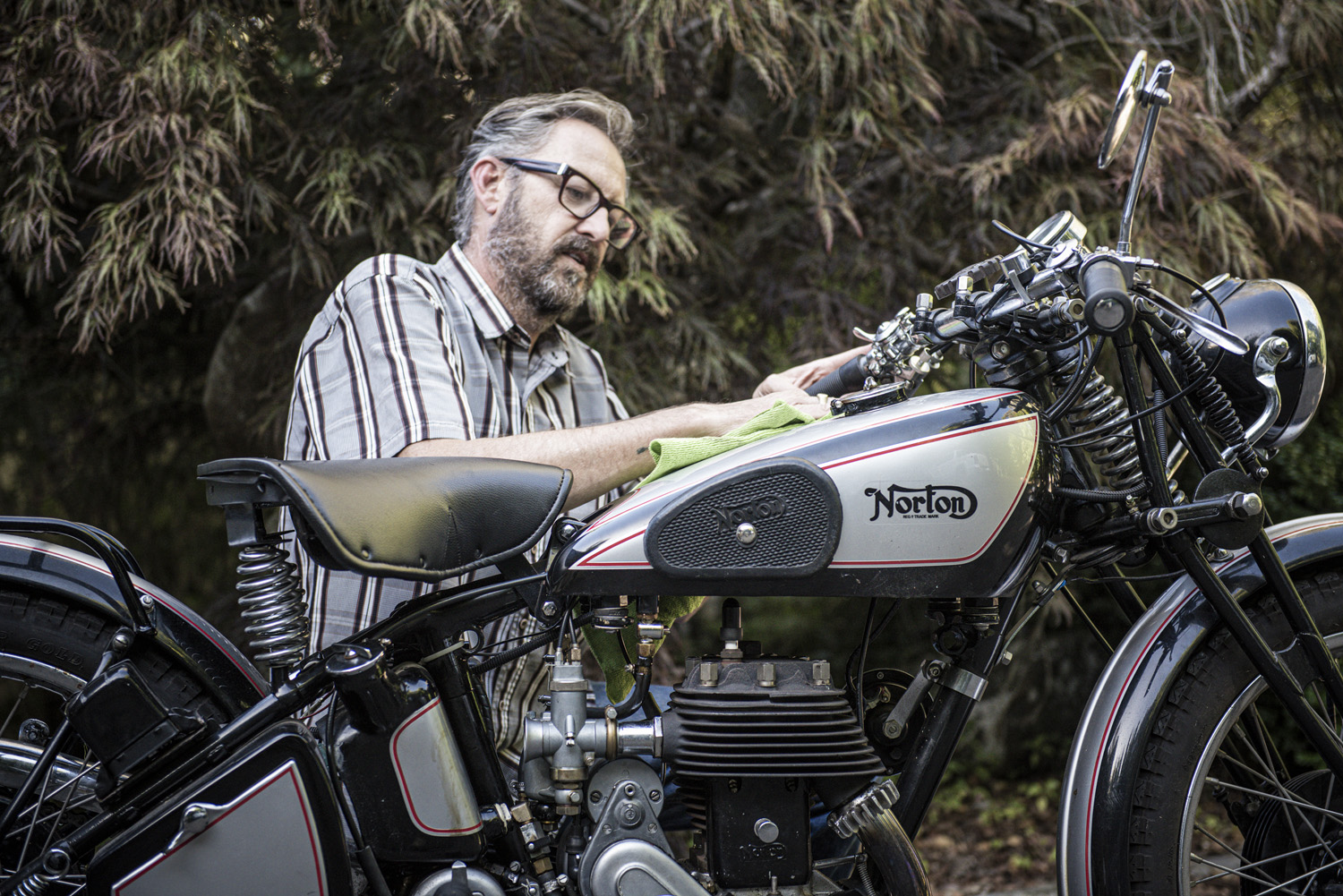
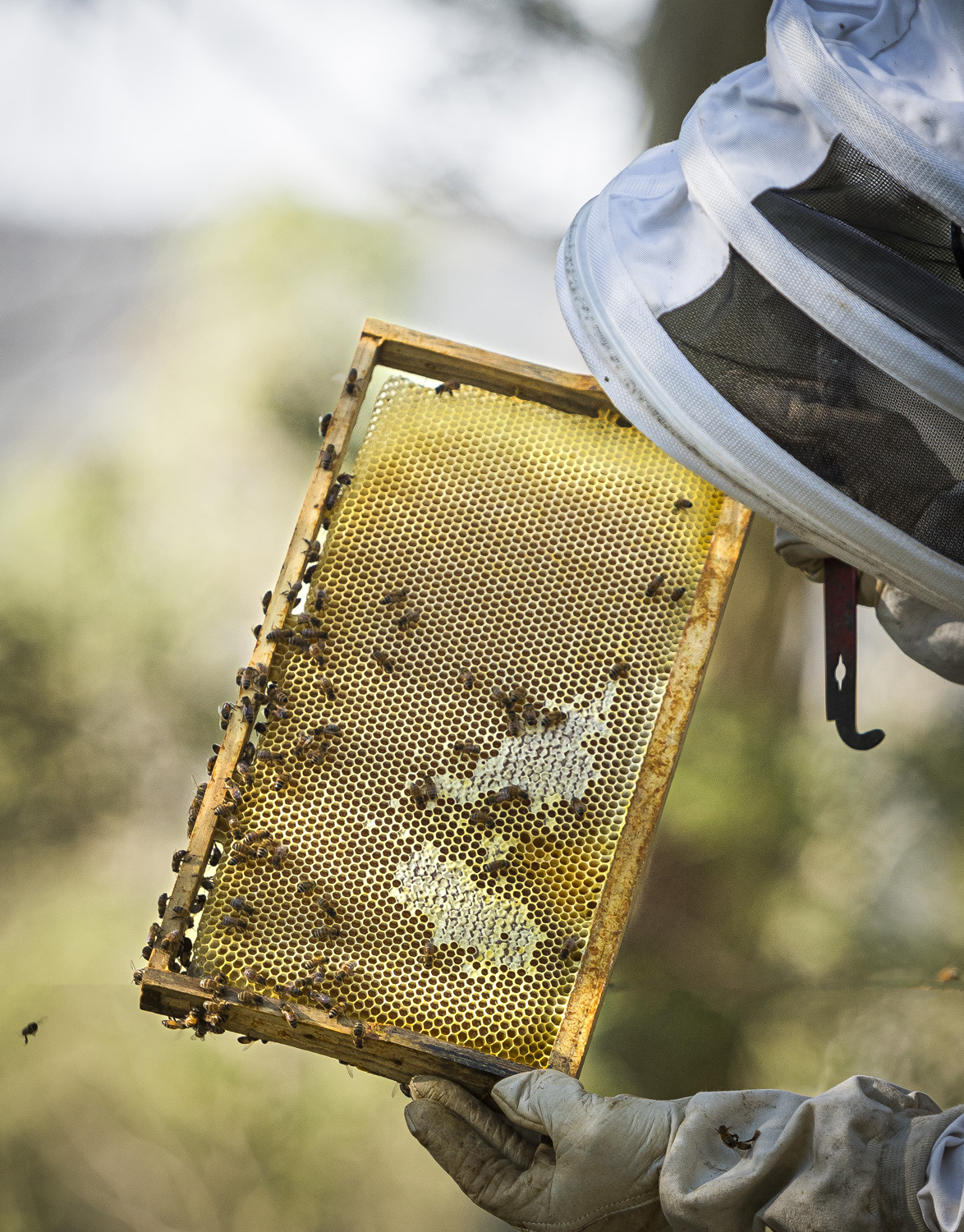
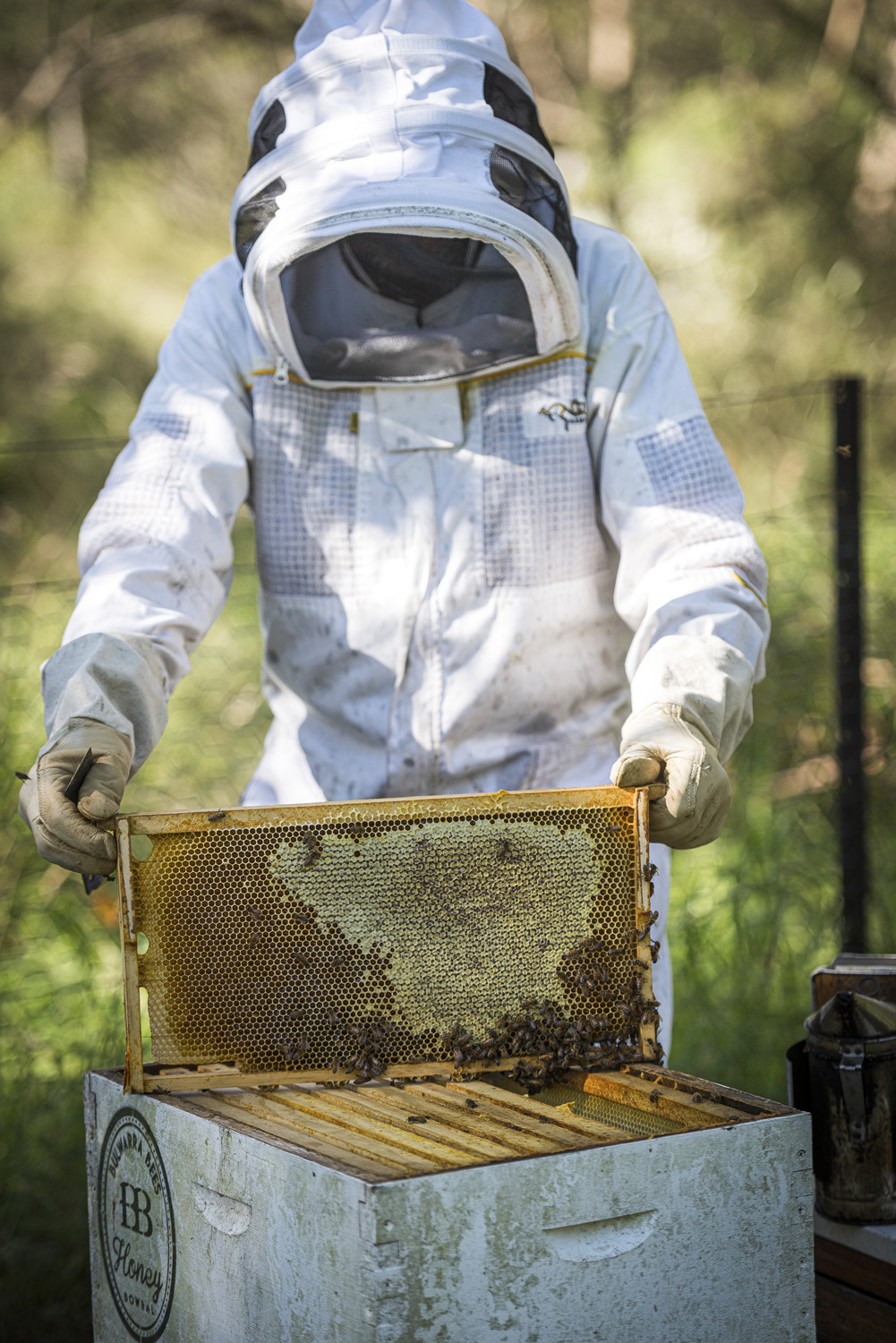

Michael Sharp
Michael is the Gallery Manager at Michael Reid Southern Highlands. He has previously worked as a lawyer, journalist and senior practitioner in Australian corporate affairs.
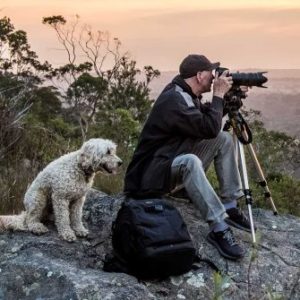
Ashley Mackevicius
Ashley discovered photography at the age of 15, which proved to be a lifeline for the academically challenged son of Lithuanian migrants. He has had a long and successful career and lives in The Southern Highlands.
- xxi Pecora Dairy June 2024
- xxvii Marlie Draught Horse Stud May 2025
- xxvi India Mark February 2025
- xxv Mussett Holdings December 2024
- xxiv Louise Frith October 2024
- xxiii Dirty Jane August 2024
- xxii Melanie Waugh July 2024
- xx Emily Gordon May 2024
- xix Steve Hogwood March 2024
- xviii Julz Beresford February 2024
- xvii Snake Creek Cattle Company November 2023
- xvi Ben Waters September 2023
- xv The Reid Brothers August 2023
- xiv Elizabeth Beaumont July 2023
- xiii The Charlotte Project June 2023
- xii Buddhism in Bundanoon May 2023
- xi Honey Thief April 2023
- x David Ball February 2023
- ix Kate Vella January 2023
- viii The Truffle Couple December 2022
- vii Wombat Man November 2022
- vi Storybook Alpacas September 2022
- v Tamara Dean August 2022
- iv John Sharp July 2022
- iii Amanda Mackevicius June 2022
- ii Denise Faulkner May 2022
- i Joadja Distillery March 2022



















